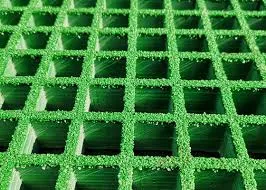
-
 Afrikaans
Afrikaans -
 Albanian
Albanian -
 Amharic
Amharic -
 Arabic
Arabic -
 Armenian
Armenian -
 Azerbaijani
Azerbaijani -
 Basque
Basque -
 Belarusian
Belarusian -
 Bengali
Bengali -
 Bosnian
Bosnian -
 Bulgarian
Bulgarian -
 Catalan
Catalan -
 Cebuano
Cebuano -
 China
China -
 China (Taiwan)
China (Taiwan) -
 Corsican
Corsican -
 Croatian
Croatian -
 Czech
Czech -
 Danish
Danish -
 Dutch
Dutch -
 English
English -
 Esperanto
Esperanto -
 Estonian
Estonian -
 Finnish
Finnish -
 French
French -
 Frisian
Frisian -
 Galician
Galician -
 Georgian
Georgian -
 German
German -
 Greek
Greek -
 Gujarati
Gujarati -
 Haitian Creole
Haitian Creole -
 hausa
hausa -
 hawaiian
hawaiian -
 Hebrew
Hebrew -
 Hindi
Hindi -
 Miao
Miao -
 Hungarian
Hungarian -
 Icelandic
Icelandic -
 igbo
igbo -
 Indonesian
Indonesian -
 irish
irish -
 Italian
Italian -
 Japanese
Japanese -
 Javanese
Javanese -
 Kannada
Kannada -
 kazakh
kazakh -
 Khmer
Khmer -
 Rwandese
Rwandese -
 Korean
Korean -
 Kurdish
Kurdish -
 Kyrgyz
Kyrgyz -
 Lao
Lao -
 Latin
Latin -
 Latvian
Latvian -
 Lithuanian
Lithuanian -
 Luxembourgish
Luxembourgish -
 Macedonian
Macedonian -
 Malgashi
Malgashi -
 Malay
Malay -
 Malayalam
Malayalam -
 Maltese
Maltese -
 Maori
Maori -
 Marathi
Marathi -
 Mongolian
Mongolian -
 Myanmar
Myanmar -
 Nepali
Nepali -
 Norwegian
Norwegian -
 Norwegian
Norwegian -
 Occitan
Occitan -
 Pashto
Pashto -
 Persian
Persian -
 Polish
Polish -
 Portuguese
Portuguese -
 Punjabi
Punjabi -
 Romanian
Romanian -
 Russian
Russian -
 Samoan
Samoan -
 Scottish Gaelic
Scottish Gaelic -
 Serbian
Serbian -
 Sesotho
Sesotho -
 Shona
Shona -
 Sindhi
Sindhi -
 Sinhala
Sinhala -
 Slovak
Slovak -
 Slovenian
Slovenian -
 Somali
Somali -
 Spanish
Spanish -
 Sundanese
Sundanese -
 Swahili
Swahili -
 Swedish
Swedish -
 Tagalog
Tagalog -
 Tajik
Tajik -
 Tamil
Tamil -
 Tatar
Tatar -
 Telugu
Telugu -
 Thai
Thai -
 Turkish
Turkish -
 Turkmen
Turkmen -
 Ukrainian
Ukrainian -
 Urdu
Urdu -
 Uighur
Uighur -
 Uzbek
Uzbek -
 Vietnamese
Vietnamese -
 Welsh
Welsh -
 Bantu
Bantu -
 Yiddish
Yiddish -
 Yoruba
Yoruba -
 Zulu
Zulu
Exploring Innovative Techniques for Efficient Water Treatment and Management Solutions
Understanding FRP Launder A Sustainable Solution for Wastewater Treatment
In an era where environmental sustainability is becoming increasingly critical, the wastewater treatment industry is under pressure to innovate and reduce its ecological footprint. One notable advancement is the implementation of Fiber Reinforced Polymer (FRP) launder systems in various treatment processes. This advanced approach offers several advantages over traditional materials, making it a preferred choice for many industrial applications.
Understanding FRP Launder A Sustainable Solution for Wastewater Treatment
One of the most compelling benefits of FRP launders is their resistance to corrosion. In wastewater treatment facilities, the presence of chemicals and biological agents can quickly degrade traditional materials. FRP launders, however, are engineered to withstand such corrosive environments, which minimizes maintenance concerns and reduces long-term costs. This resilience is particularly important for facilities that treat industrial wastewater, where the chemical composition can vary widely.
frp launder

Moreover, the lightweight nature of FRP allows for easier installation and transportation. Traditional materials often require heavy machinery for installation, leading to increased labor costs and time delays. With FRP launders, operators can streamline the installation process, allowing for faster project completion without compromising on quality. This efficiency is particularly beneficial for facilities looking to upgrade or expand their operations without significant downtime.
Another significant advantage of FRP launders is their design flexibility. These systems can be molded into various shapes and sizes, making them highly adaptable to different treatment processes. From flumes to channels, FRP can be customized to meet the specific needs of a facility, enhancing overall efficiency in wastewater management. This versatility also allows for better integration into existing systems, providing a seamless upgrade path for aging infrastructures.
In addition to their practical benefits, FRP launders contribute to sustainability efforts in the wastewater treatment industry. By reducing the frequency of replacement due to corrosion and wear, these systems minimize waste and the need for raw materials. Moreover, their longevity translates into fewer resources spent on maintenance and repairs, aligning with today’s focus on eco-friendly practices.
In conclusion, FRP launders represent a significant step forward in the wastewater treatment industry. Their corrosion resistance, lightweight nature, design flexibility, and sustainability advantages make them an ideal choice for modern facilities. As more industries recognize the importance of innovative solutions to environmental challenges, FRP launders will likely play a crucial role in shaping the future of effective and sustainable wastewater management. Transitioning to these advanced systems not only supports regulatory compliance but also fosters a more sustainable approach to managing our planet's precious water resources.









